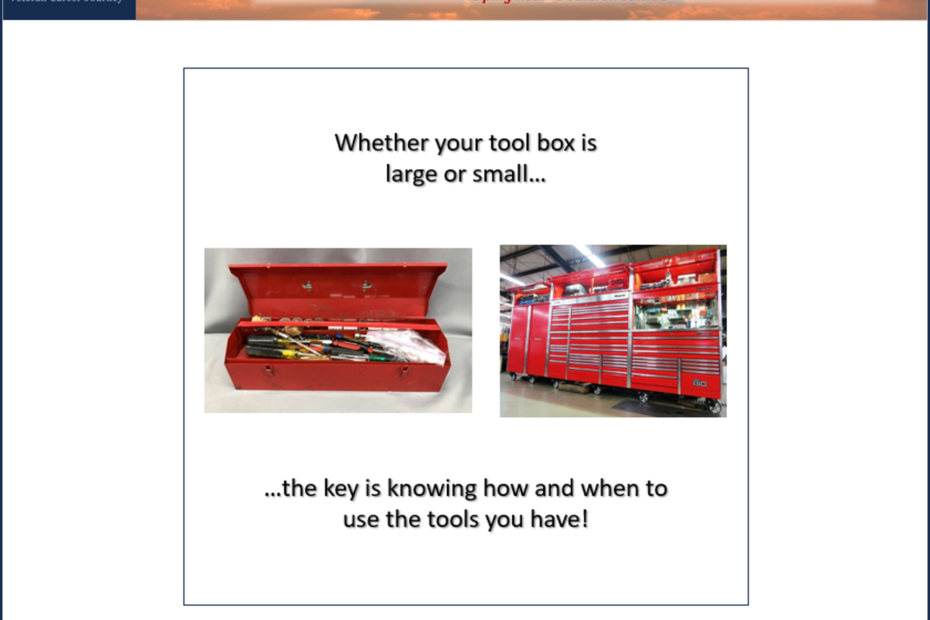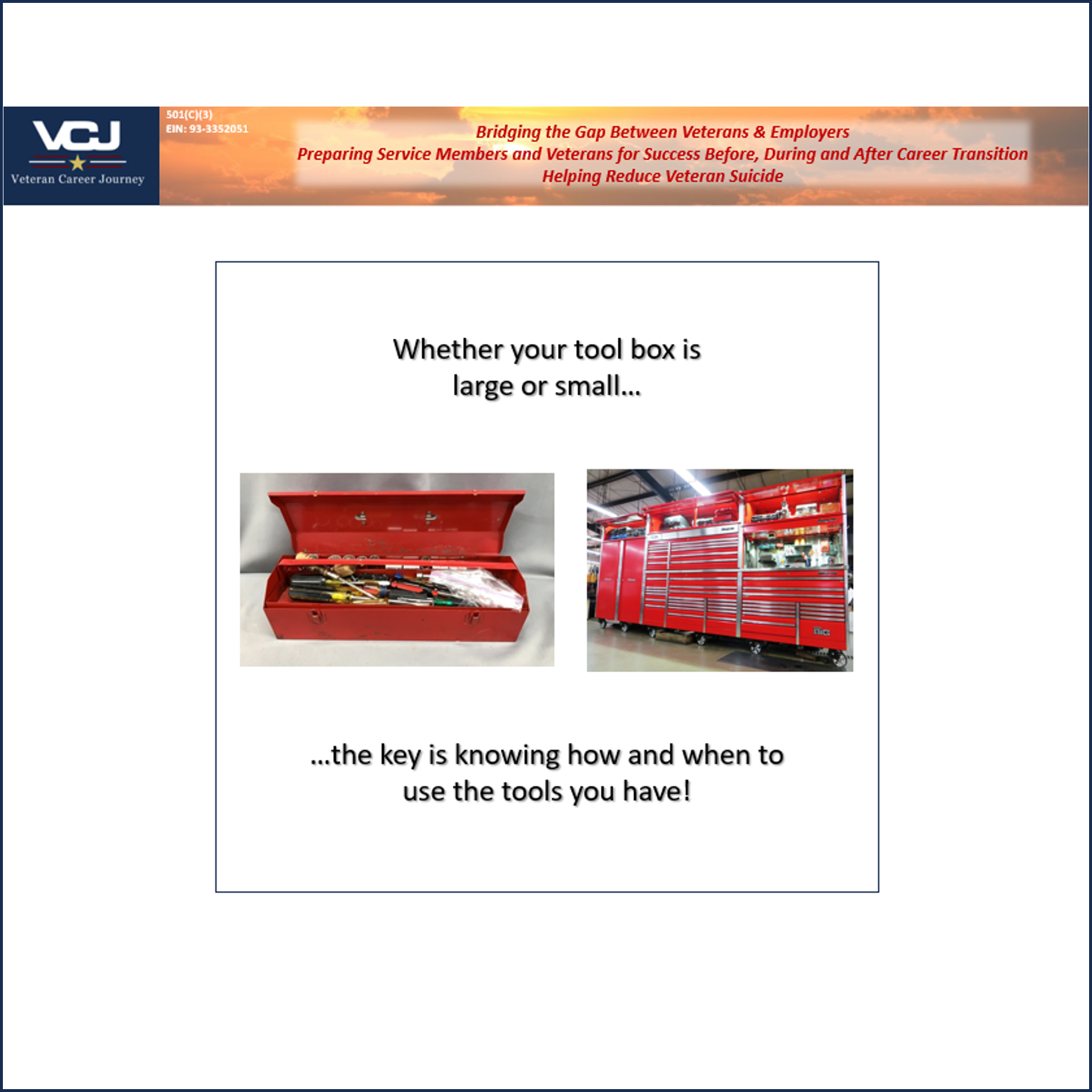Whether transitioning out of the military after one term, completing a 30+ year career, or anything in between, as a veteran you bring experience, skills, and capabilities that are often superior to your civilian contemporaries.
I like to think of these experiences, skills, and capabilities as tools in your tool box.
Skilled craftsmen know that having the tools is one thing, but knowing when and how to use them is something else entirely.
From behavioral/leadership skills (e.g. communication, teambuilding, problem-solving, critical thinking, decision-making, initiative, planning, etc. ) to the technical skills of your military career field, your tool box is quite robust.
Having spent years (or perhaps decades) in the military, you learned what these tools are, how to use them, and when.
Now you are staring down the barrel of a great unknown – your career transition and your future. How do you prepare yourself for success?
Check your tool box!
- Take inventory – What tools are in there? Are they technical tools impacting specific aspects of specific jobs? Or, are they behavioral/leadership tools that might be used more broadly? Write them down. Organize them in a way that makes sense to you.
- Check their condition – What shape are these tools in? Are they well cared for and ready for use? If you haven’t used them in a while, decide if there’s a gap you need to close. For example, if you have experience welding but you haven’t done that work in a while AND you want to be a welder, you may need to plan some refresher training.
- Assess how you might use them in a new environment – Read job descriptions, learn what is expected. Connect and NETWORK with people in the world you seek to join.
- Prepare yourself to use them in a new, unfamiliar work world – Remember, interviewing is an early step to success; you first must describe your value to potential employers before you get to demonstrate it on the job. Learn what employers are ASKING for. Build your ANSWERS for every ask. Use language they can understand. Do mock interviews – they really do help.
These steps may seem abstract but they are important to making you an attractive candidate for great job openings. Employers need to see that you HAVE the tools and know how and when to USE them – on the job, in their business.

